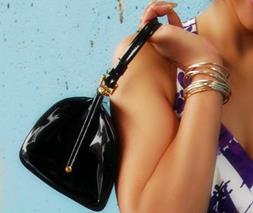Posted in Uncategorized

If this is something your company is coping with trademark infringement litigation is one option you should consider. Your company would have to establish it owned trademark rights, your trademark (such as your company’s name or logo) was used without permission and damages resulted.
Counterfeit goods are a $250 billion a year business, reports USA Today. The U.S. Customs and Border Protection (CBP) agency is responsible for trying to stop counterfeits from entering the country. They only confiscate a fraction of what makes it in, but in 2013 they confiscated $1.7 billion dollars worth of goods last year.
The danger of counterfeit items is not limited to cheap clothes, accessories or watches falling apart soon after they’re bought.
- Some of the counterfeit items commonly smuggled into the country include computer chips (which could be installed in medical equipment and household items), pharmaceuticals and personal products (with the active ingredients of legitimate products replaced by cheaper, toxic, potentially dangerous chemicals).
- Codan, an Australian maker of metal detectors found it was not only the victim of counterfeiters but by computer hackers as well, according to Reuters. A company laptop used on a business trip in China was hacked through a hotel wifi system, designs were obtained and soon afterward knock offs of its products were sold in Africa stamped with the company logo, containing inferior parts.
Manufacturers using counterfeit parts (knowingly or not) could be sued for damages if their products end up injuring customers or bystanders. If the entire product is counterfeit, sold without permission, is defective and injures someone, a manufacturer could be subject to legal claims until it can establish it wasn’t its product doing the harm.
Litigating a trademark/counterfeit case can be lengthy and expensive, but fashion empire Chanel successfully sued importers of counterfeit products in Canada, winning a $380,000 verdict and injunctive relief against several people and companies in a way that can save money and time.
- The defendants were found to have been importing, advertising and selling wallets, earrings, cell phone covers and jewelry with Chanel’s trademarks on them.
- The goods at issue were of lower quality than the genuine Chanel goods. A Canadian Federal Court ruled defendants infringed Chanel’s trademark rights and the counterfeiters likely depreciated the goodwill associated with the Chanel trademarks.
The Canadian court used a process called a summary trial which is similar to summary judgment in U.S. federal courts, in which a decision is made “on the papers” (documentary evidence, affidavits, discovery responses) instead of testimony at a trial, making the process much faster and less expensive.
If you believe your business has suffered harm because of counterfeiters, contact our office. We can talk about the counterfeit products, who you believe is making, importing and selling them. Legal action against the responsible partied could result in your firm being awarded damages and a court order the selling of counterfeits cease.
